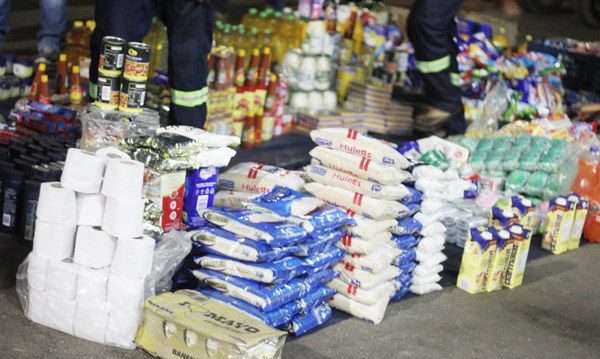Bond Notes Crisis: GoZ Turns Against Businesses
“If we fine you and freeze your bank accounts and you continue committing the same offence, then it shows you are not able to operate within the confines of the laws of this country" - RBZ FIU

Out of the 12 companies, 10 are facing allegations of engaging in forward pricing, a practice that involves quoting prices using projected future exchange rates, while two others are being charged for pricing their goods exclusively in foreign currency.
FIU director-general Mr Oliver Chiperesa confirmed the latest development adding that market surveillance was continuing.
“Yesterday (Friday), we uncovered 12 violators of our regulations and we have frozen their bank accounts.
“Two of them were businesses refusing to accept Zimbabwe dollars, while 11 were businesses using forward pricing.
“The law only allows businesses to charge 10% above the interbank exchange rate, but we saw people who were using exchange rates of up to US$1: $6,000 and some as much as $7,000 to the US dollar. So, we have frozen their accounts for the time being.
“Like we said, we are not just focusing on fining them. We are going to freeze those accounts indefinitely for the time being.”
Among those penalised were supermarkets that were using an exchange rate of US$1: $6,800, which was “way above the legally allowable margin”.
A fortnight ago, the FIU froze bank accounts belonging to four major distributors of basic commodities — Saxin Trading, Simrac Enterprises, Brainscope Investments and Munella Enterprises — for similar practices.
The FIU says repeat offenders will have their licences revoked.
“If we fine you and freeze your bank accounts and you continue committing the same offence, then it shows you are not able to operate within the confines of the laws of this country.
“We will then have to make such recommendations. However, for these 13, we are going to give them a chance to mend their ways.
“Should they commit a similar violation in the future, I think revocation of licences is something which should be seriously considered by the relevant authorities.”
In a separate interview, Permanent Secretary in the Ministry of Industry and Commerce Dr Mavis Sibanda said the high-level committee recently set up by Government had established that “market malpractices” were behind the recent spate of price hikes.
The committee will now undertake regular market surveillance.
“The depreciation of the local currency against the United State dollar and the dollarisation of the value chain, which has resulted in over 70% of transactions being conducted in the United States dollar, has had an inflationary impact on the prices of basic commodities.
“Market malpractices, which include the redirecting of goods from the formal to the informal sector, has been one of the major causes of the artificial shortages of basic commodities in the formal market.”
The Ministry of Industry and Commerce, she said, was conducting routine surveys on prices and availability of basic commodities in the market in order to keep abreast with market dynamics and facilitate formulation of evidence-based policies.
Government, she added, will invoke provisions of the Consumer Protection Act to ensure “prohibited conduct and offences are prevented, detected and prosecuted”.
“The ministry is working on finalising the consumer regulations, in close collaboration with the Attorney-General, and these will also include appropriate punitive measures for those that violate consumer rights, as a way of giving redress mechanisms.
“Other punitive measures are also being applied under relevant laws such as the Exchange Control Act, which falls under the purview of the Reserve Bank of Zimbabwe.”
On Friday, President Mnangagwa said those found deliberately engaging in such malpractices risk having their operating licences withdrawn.






















